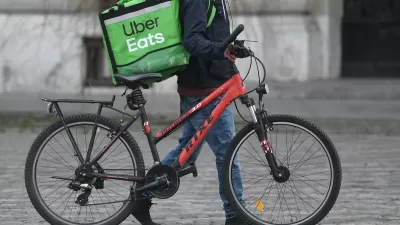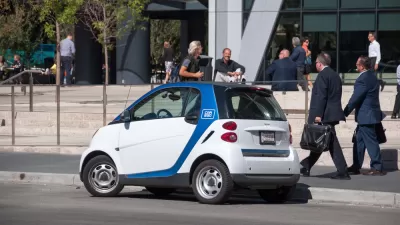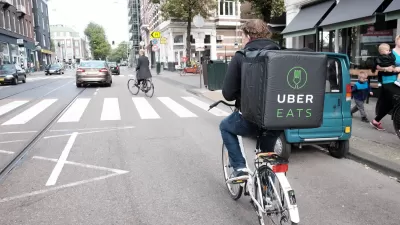Sharing economy companies encourage personal interactions to improve customer satisfaction and trust among users.
Jason Tanz reports on how the sharing economy (Lyft, Uber, etc.) is bringing strangers together in this "new era of Internet-enabled intimacy."
While the internet has challenged the geographically-bound definition of a community and allowed us to connect without being in physical contact with each other, the new wave of sharing economy is increasingly "link[ing] individuals and communities in the physical world." As John Zimmer, the cofounder of Lyft comments: "I think people are craving real human interaction—it’s like an instinct. We now have the opportunity to use technology to help us get there."
Sharing economy companies have gained people's trust in each other by encouraging more "face-to-face" interactions, linking to virtual identities, supervising online activities, and creating an experience where "the commerce feels almost secondary, an afterthought to the human connection that undergirds the entire experience." Encouraging users to meet in person has resulted in "higher satisfaction rates," customers who took better care of each others' properties, "fewer damage claims," and "it made the experience better for both parties."
In this way, sharing economy is bringing back the experience of a "pre-industrial society, when our relationships and identities—social capital, to use the lingo—mattered just as much as the financial capital we had to spend."
FULL STORY: How Airbnb and Lyft Finally Got Americans to Trust Each Other

Alabama: Trump Terminates Settlements for Black Communities Harmed By Raw Sewage
Trump deemed the landmark civil rights agreement “illegal DEI and environmental justice policy.”

Study: Maui’s Plan to Convert Vacation Rentals to Long-Term Housing Could Cause Nearly $1 Billion Economic Loss
The plan would reduce visitor accommodation by 25% resulting in 1,900 jobs lost.

Planetizen Federal Action Tracker
A weekly monitor of how Trump’s orders and actions are impacting planners and planning in America.

Waymo Gets Permission to Map SF’s Market Street
If allowed to operate on the traffic-restricted street, Waymo’s autonomous taxis would have a leg up over ride-hailing competitors — and counter the city’s efforts to grow bike and pedestrian on the thoroughfare.

Parklet Symposium Highlights the Success of Shared Spaces
Parklets got a boost during the Covid-19 pandemic, when the concept was translated to outdoor dining programs that offered restaurants a lifeline during the shutdown.

Federal Homelessness Agency Places Entire Staff on Leave
The U.S. Interagency Council on Homelessness is the only federal agency dedicated to preventing and ending homelessness.
Urban Design for Planners 1: Software Tools
This six-course series explores essential urban design concepts using open source software and equips planners with the tools they need to participate fully in the urban design process.
Planning for Universal Design
Learn the tools for implementing Universal Design in planning regulations.
Caltrans
Smith Gee Studio
Institute for Housing and Urban Development Studies (IHS)
City of Grandview
Harvard GSD Executive Education
Toledo-Lucas County Plan Commissions
Salt Lake City
NYU Wagner Graduate School of Public Service





























